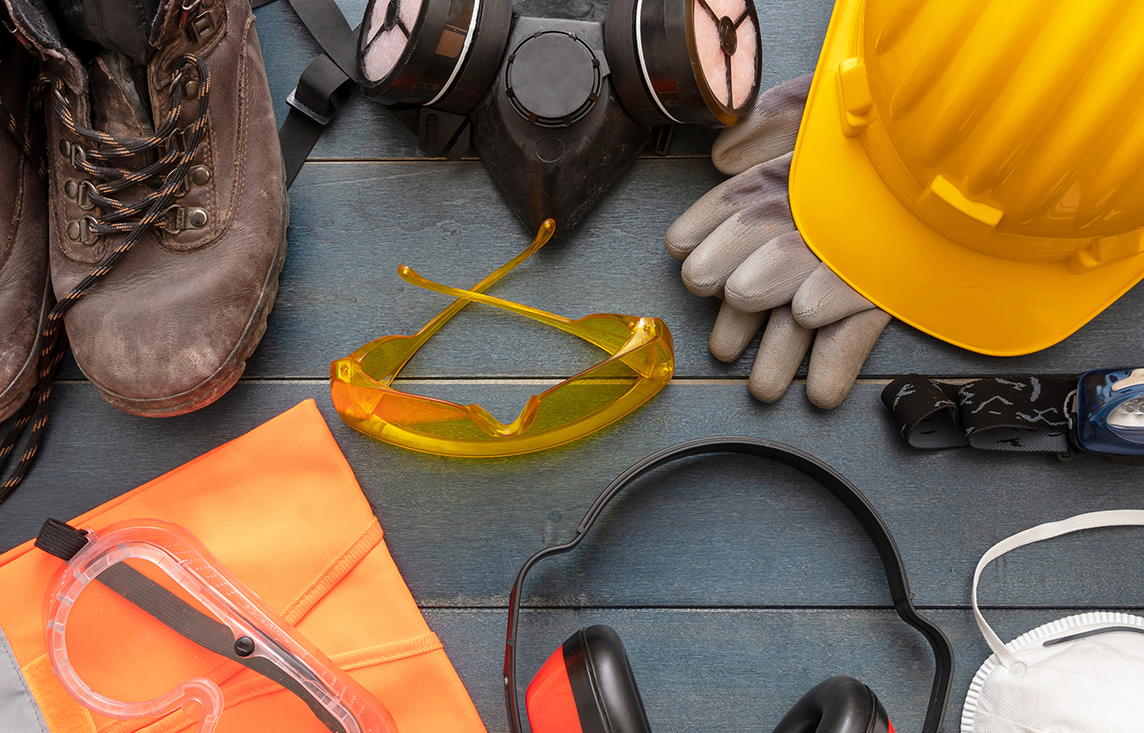
Safety Matters – Manufacturing
Manufacturing Workers: Never Underestimate the Importance of PPE
Today, the equipment used in manufacturing operations is safer than ever. But in order to ensure maximum protection against occupational injuries and fatalities, you need to make the wearing of personal protective equipment (PPE) your number one priority.
Oftentimes, workers don’t wear their safety equipment because it’s a nuisance to put on or because it’s bulky and uncomfortable. It can be tempting not to wear PPE at all, but ultimately, it is up to each person on the plant floor to be a professional and recognize the life-saving benefits of PPE.
Hand and arm protection are important pieces of PPE in manufacturing environments because of the presence of amputation hazards and harmful materials. Depending on the work you do, you may need leather, canvas, metal mesh, fabric, coated fabric, chemical-resistant or liquid-resistant gloves.
Head protection is required in areas with the danger of impact, falling or flying objects and electrical shock or burn. Be sure to select the proper size, and take good care of the equipment so it doesn’t fail in the event of an accident.
Foot protection, also known as steel-toe boots, safety-toe boots, steel-capped boots or safety shoes, is a must for all workers exposed to falling objects and puncture wounds from below. Most shoes will have symbols on the outside to illustrate the type of protection the footwear offers.
When there is a chance of physical, chemical or radiation damage to the eyes or face, you must wear appropriate eye protection. Everyday glasses do not qualify as proper protection—request eye and face PPE that fits over spectacles.
Respiratory protection is one of the most important pieces of PPE in a manufacturing environment because without it, toxins may enter straight into the body. It is important for you to understand how to use this PPE properly and what its limitations are.
Though it is often overlooked, hearing protection can be crucial in a manufacturing environment to prevent permanent damage. Remember that plain cotton is not an acceptable form of ear protection.
In some cases, full-body protection may be necessary to protect against all harmful agents in the workplace. When full-body protection is required, it must be worn whenever you are in designated areas.
Whatever your PPE, make sure it fits properly. If not, see your supervisor immediately to have it adjusted or re-fitted. It may be helpful to think of PPE like a football player thinks of his own equipment: you stand a better chance of continuing successfully with your job and your home life if you are properly protected from serious injury by well-fitting protective wear.
Reach Out to a Workplace Safety Expert
To learn more about workplace safety, talk to your supervisor or contact the manufacturing safety professionals at VTC Insurance Group. You can reach us at 248.828.3377 or visit vtcins.com.
This blog is for informational purposes only and is not intended as legal advice.


